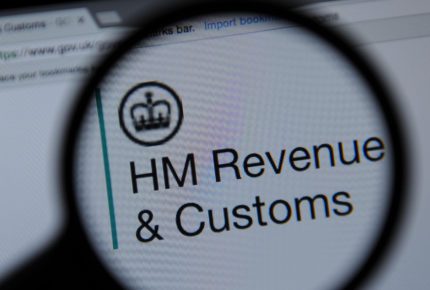

Before the Covid-19 lockdown happened, most people didn’t even know what ‘furlough’ meant. That all changed when businesses were forced to close their doors for extended periods of time. Most business owners were relieved to hear of the government plans to compensate them for the losses that were outside of their control. For many, the furlough scheme was a lifeline that prevented their business from going under. However, what if you were caught on the wrong side of the law? It is estimated that £3.5 billion has been lost due to furlough fraud. Thousands of individuals are now being prosecuted for fraudulently exploiting the government’s Coronavirus Job Retention Scheme. If you find yourself in this unenviable position, read on to understand the scope of the offence of furlough fraud, how it is investigated, and the penalty that you could face if you are convicted.
What is the offence of furlough fraud?
The offence of furlough fraud generally refers to making fraudulent claims under the government’s Coronavirus Job Retention Scheme (CJRS). This was an initiative that was introduced in March 2020 to assist small businesses during lockdown. The idea was that the government would cover up to 80% of the salaries of employees who were not working. Many businesses applied on a legitimate basis for the funding, but they fell foul of the law where their circumstances changed but they failed to update HMRC in respect of their new circumstances.
Furlough fraud is prosecuted under the auspices of the Fraud Act 2006. This law creates different types of fraud offences including fraud by false representation, fraud by failure to provide information that you are under a legal duty to provide, and fraud by abuse of position. Furlough fraud is usually either fraud by false representation, or fraud by failure to provide information. It could also fall under the offence of cheating the public revenue.
Fraud by false representation occurs where a person dishonestly makes an untrue statement (written or verbal), intending to profit by doing so or to cause a loss to another. This could arise if you purposefully and dishonestly made a false representation to HMRC in respect of your or your company’s eligibility for a pay-out under the CJRS. A false representation can be express or implied. This means that a failure to update information could also constitute a false representation.
Fraud by failure to disclose information occurs where the person dishonestly fails to disclose to another person information that he or she is under a legal duty to disclose, in order to create a profit for themselves or another person, or to cause a loss. There is sometimes an overlap between fraud by false representation and fraud by failure to disclose information.
The offence of cheating the public revenue is a common law offence. This means that it has been defined through judgments of the courts. It is cast very broadly. To achieve a conviction, the prosecution must prove beyond reasonable doubt that the defendant has made a false statement with the intention of defrauding the public revenue.
In addition, where two or more individuals are involved, particularly where it is a multi-faceted offence, involving several different criminal acts, furlough fraud could be charged under the common law offence of conspiracy to defraud.
Examples of furlough fraud include:
- Making a legitimate claim but then failing to update circumstances, e.g. employees have gone back to work
- Making a claim on behalf of employees but the employees have in fact continued to work
- Making a claim on behalf of employees who do not exist
How is furlough fraud investigated?
HMRC has law enforcement capabilities that enable it to investigate certain types of financial crime, including furlough fraud. The government introduced a notice period of 90 days in which individuals or businesses could notify the CJRS of a change in circumstances that would affect their eligibility for the furlough scheme. If no such notice is given, the HMRC can impose a penalty of up to double the amount that was overpaid and recover this amount via charges on income tax. This penalty does not comprise a finding of criminal liability and can be imposed even if the overclaim was an accident.
Meanwhile, where there is a suggestion of dishonest behaviour, the alleged offence could fall for investigation by HMRC’s furlough fraud taskforce. Individuals who could be prosecuted include company directors, finance directors, and anyone else who was involved in the management of the company at the time of the claim.
HMRC officers have similar powers to police officers when it comes to law enforcement. They are permitted to obtain search warrants, seize evidence, and use reasonable force where necessary. In addition, they can apply for a production order which compels the holder of a document to hand it over within a certain time frame. This could apply to business accounts, and HR documents. HMRC also has the power to interview suspects under caution. If you are asked to attend an HMRC interview, you are entitled to legal representation.
If you fail to mention something that you later rely upon in court, the court may draw an ‘adverse inference’; this means that it could be damaging to your credibility. For example, say you are the HR manager of a company, and you are accused of fraud on the basis that you were aware that furlough payouts were being made in respect of an employee who had left the organisation prior to lock down. You answer no comment in the HMRC interview, but you later allege that you did not know that the employee had left the organisation. Your failure to mention your defence in the interview could be held against you.
The advantage of instructing a criminal defence solicitor is that they can contact the HMRC investigator prior to the interview to obtain more information about the case against you. Your lawyer can then advise you in respect of the best strategy for responding to the HMRC’s questions.
For allegations of fraud, HMRC will usually consult with the CPS to decide whether to lay a charge. If you are charged, the prosecution will be handled by the Crown Prosecution Service. You will make a first appearance in the Magistrates’ Court. From there, your case will either remain in the Magistrates’ Court, or it may be moved to the Crown Court.
What is the penalty for furlough fraud?
The severity of the punishment for fraud varies widely depending on the value of the fraud, your role in the offence, and whether your case is heard in the Crown Court or the Magistrates’ Court. The courts are obliged to follow the sentencing guidelines produced by the Sentencing Council.
The maximum sentence for fraud if your case is heard in the Magistrates’ Court is 12 months imprisonment or a fine, or both. Meanwhile, if it is heard in the Crown Court, the maximum sentence is 10 years’ imprisonment. You could also receive a fine. When deciding the sentence that you should receive the court will look at:
- The financial value of the offence (or what the value would have been if the offence had been carried out successfully).
- Your level of culpability – this refers to whether you took a leading or subsidiary role in planning the offence, also whether the offence took place over an extended period of time, and whether the planning of the offence was sophisticated.
Say you are the director of a company and you made fraudulent claims for various employees through the time that the furlough scheme was operating your level of culpability will be taken to be high. If the value of the fraud was £50 000, the starting point for your sentence would be three years custody. The court will then adjust your sentence based on aggravating and mitigating factors present in your case.
If you have previous convictions for similar offences, this will increase your sentence. If you attempted to prevent others from reporting the offence, attempted to conceal or dispose of evidence, or attempted to blame others, these would also serve as aggravating factors. On the other hand, if you are the sole provider for dependent relatives, this would be a mitigating factor. The sentence range would be between 18 months and 4 years custody.
If you believe that the court has departed from the guidelines imposed by the sentencing council in deciding your sentence, you may be eligible to appeal. You should discuss this with your legal representative.
Where to get further help?
If you have been accused of furlough fraud, do not delay in seeking legal assistance. In general, the earlier we are approached in a case, the better the chance of a positive outcome. At Stuart Miller Solicitors, we take a proactive approach to cases in the early stages. We will put pressure on the prosecution to justify the continuation of the prosecution against you. We could even get your case dropped before court. Contact us for a no obligation consultation today.

